








| History By Day |












Betsy Ross, the woman often
credited with having sewn the first
American flag with stars and
stripes, is born on January 1st,
1752 in Philadelphia,
Pennsylvania.
Ross wouldn't achieve fame until
after her death. Around the time
of the 1876 Centennial
credited with having sewn the first
American flag with stars and
stripes, is born on January 1st,
1752 in Philadelphia,
Pennsylvania.
Ross wouldn't achieve fame until
after her death. Around the time
of the 1876 Centennial
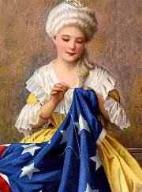
celebrations, her grandson, William J. Canby, presented a
paper to the Historical Society of Pennsylvania claiming
Ross had "made with her hands the first flag" of the United
States of America.
paper to the Historical Society of Pennsylvania claiming
Ross had "made with her hands the first flag" of the United
States of America.
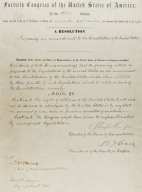
Ratified on February 3rd, 1870,
the Fifteenth Amendment to the
United States Constitution grants
all citizens the right to vote
regardless of "race, color, or
previous condition of servitude".
Thomas Mundy Peterson, a
school custodian, became the first
African American to vote after
the Fifteenth Amendment to the
United States Constitution grants
all citizens the right to vote
regardless of "race, color, or
previous condition of servitude".
Thomas Mundy Peterson, a
school custodian, became the first
African American to vote after
the adoption of the 15th Amendment. He voted on
March 31st, 1870 in Perth Amboy, New Jersey in a local
school board election.
March 31st, 1870 in Perth Amboy, New Jersey in a local
school board election.

Born on March 3rd, 1847
Alexander Graham Bell was a
famed scientist, inventor and a
professor at Boston University.
Bell was driven by intellectual
curiosity that saw him come up
with inventions from his early
childhood all the way through his
final years.
Alexander Graham Bell was a
famed scientist, inventor and a
professor at Boston University.
Bell was driven by intellectual
curiosity that saw him come up
with inventions from his early
childhood all the way through his
final years.
Bell received a patent for the telephone, his most famous
invention, on March 7th, 1876. The following year he
formed the Bell Telephone Company.
invention, on March 7th, 1876. The following year he
formed the Bell Telephone Company.
Named after the American
astronomer Edwin Hubble, the
Hubble Space Telescope was
launched into space on April 24th,
1990.
A collaborative project between
NASA and the European Space
Agency, the Hubble Telescope is
a large, versatile and a crucial
astronomer Edwin Hubble, the
Hubble Space Telescope was
launched into space on April 24th,
1990.
A collaborative project between
NASA and the European Space
Agency, the Hubble Telescope is
a large, versatile and a crucial
research tool for astronomers. To date, over 4,000
peer-reviewed papers have been written based on data
collected from the Hubble Space Telescope.
peer-reviewed papers have been written based on data
collected from the Hubble Space Telescope.
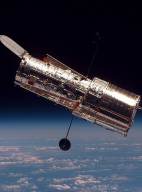
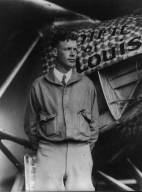
On July 7th, 1955, "Rock Around
The Clock", a blues-based rock
song by Bill Haley & His Comets
reached the top spot on the
Billboard music charts. The song
was Max C. Freedman and James
E. Myers and recorded in late
1952.
The song made history as it
The Clock", a blues-based rock
song by Bill Haley & His Comets
reached the top spot on the
Billboard music charts. The song
was Max C. Freedman and James
E. Myers and recorded in late
1952.
The song made history as it
Lindbergh was also an author, inventor and explorer, who,
as an non-interventionist, would later oppose the United
States getting involved in World War II.
as an non-interventionist, would later oppose the United
States getting involved in World War II.
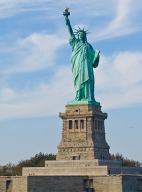
Shipped on board the French
frigate Isère, the Statue of Liberty
arrived in New York Harbor on
June 17th, 1885. To transport the
massive statue it was shipped in
214 crates which contained an
amazing 350 separate pieces.
The Statue of Liberty, located in
New York Harbor on Liberty
frigate Isère, the Statue of Liberty
arrived in New York Harbor on
June 17th, 1885. To transport the
massive statue it was shipped in
214 crates which contained an
amazing 350 separate pieces.
The Statue of Liberty, located in
New York Harbor on Liberty
Island, soars over 300 feet from the foundation, with the
statue itself measuring 151 feet in height and is one of the
most recognizable landmarks in the United States.
statue itself measuring 151 feet in height and is one of the
most recognizable landmarks in the United States.
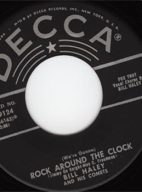
In the early morning of May 20th,
1927, Charles Lindbergh became
the first solo pilot and the first
American to fly across the Atlantic
non-stop, becoming an overnight
sensation. Lindbergh won the
Orteig Prize, a $25,000 award
offered to the first pilot to fly from
New York City to Paris, France.
1927, Charles Lindbergh became
the first solo pilot and the first
American to fly across the Atlantic
non-stop, becoming an overnight
sensation. Lindbergh won the
Orteig Prize, a $25,000 award
offered to the first pilot to fly from
New York City to Paris, France.
became the first rock and roll song to top the American
charts and many now consider "Rock Around The Clock"
the song that put rock and roll on the map, both across
America and around the globe.
charts and many now consider "Rock Around The Clock"
the song that put rock and roll on the map, both across
America and around the globe.

On August 21st, 1959, Hawaii
was admitted to the Union
becoming the 50th state of the
United States of America.
Hawaii, along with Alaska, one of
two states outside the contiguous
United States and is the
southernmost state and the second
westernmost state after Alaska.
was admitted to the Union
becoming the 50th state of the
United States of America.
Hawaii, along with Alaska, one of
two states outside the contiguous
United States and is the
southernmost state and the second
westernmost state after Alaska.
Located on the island of Oahu, Hawaii's capital is
Honolulu. The 2000 census estimate puts the state's
population at 1,283,388, which makes it the 42nd most
populist state.
Honolulu. The 2000 census estimate puts the state's
population at 1,283,388, which makes it the 42nd most
populist state.
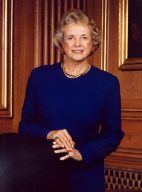
Appointed by President Ronald
Reagan, Sandra Day O'Connor
was confirmed by the United
States Senate by a vote of 99-0
on September 21st, 1981 and
took her seat on September 25th,
becoming the first female Justice of
the Supreme Court of the United
States.
Reagan, Sandra Day O'Connor
was confirmed by the United
States Senate by a vote of 99-0
on September 21st, 1981 and
took her seat on September 25th,
becoming the first female Justice of
the Supreme Court of the United
States.
O'Connor served on the Supreme Court for 25 years until
she retired in 2006. She was replaced by Samuel Alito in
January of 2006.
she retired in 2006. She was replaced by Samuel Alito in
January of 2006.
Apollo 7 was launched on
October 11th, 1968, becoming
the first manned mission in the
Apollo program. The mission was
manned by 3 astronauts, Walter
Schirra, Donn Eisele, and Walter
Cunningham.
The mission lasted eleven days
and included the first live television
October 11th, 1968, becoming
the first manned mission in the
Apollo program. The mission was
manned by 3 astronauts, Walter
Schirra, Donn Eisele, and Walter
Cunningham.
The mission lasted eleven days
and included the first live television
broadcast from an American spacecraft. The crew was
awarded the Distinguished Service Medal in October of
2008, although Walter Cunningham was the only living
member at that point.
awarded the Distinguished Service Medal in October of
2008, although Walter Cunningham was the only living
member at that point.
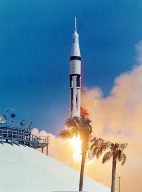
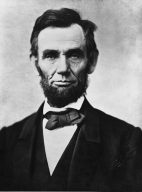
Abraham Lincoln became the first
Republican President, and the 16th
President of the United States on
November 6th, 1860. With his
strength in the North states,
Lincoln beat Democrat Stephen A.
Douglas, Southern Democrat John
C. Breckinridge, and John Bell of
the new Constitutional Union Party.
Republican President, and the 16th
President of the United States on
November 6th, 1860. With his
strength in the North states,
Lincoln beat Democrat Stephen A.
Douglas, Southern Democrat John
C. Breckinridge, and John Bell of
the new Constitutional Union Party.
Lincoln would go on to successfully lead the United States
through her most trying time, the American Civil War,
where he helped preserve the Union and bring slavery to
an end.
through her most trying time, the American Civil War,
where he helped preserve the Union and bring slavery to
an end.
Radio City Music Hall, a famous
landmark and popular tourist
attraction located in New York
City, opened for the first time on
December 27th, 1932. It is
nicknamed the "Showplace of the
Nation" and was declared a city
landmark in 1978.
Throughout the years, the Music
landmark and popular tourist
attraction located in New York
City, opened for the first time on
December 27th, 1932. It is
nicknamed the "Showplace of the
Nation" and was declared a city
landmark in 1978.
Throughout the years, the Music
Hall has hosted a variety of famous events including the
Grammy Awards, the NFL Draft and many concerts and
sporting events.
Grammy Awards, the NFL Draft and many concerts and
sporting events.
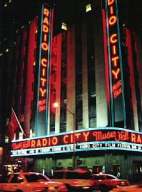
| History by Day - Copyright 2009-2011 |

| ***Books For Sale*** |
| History Books Store |
